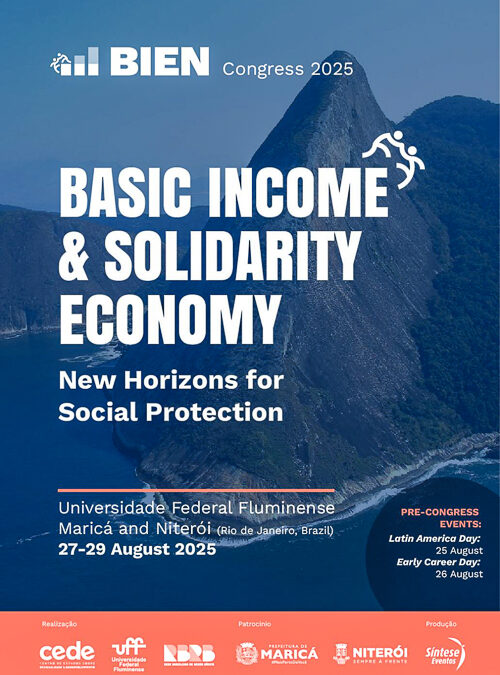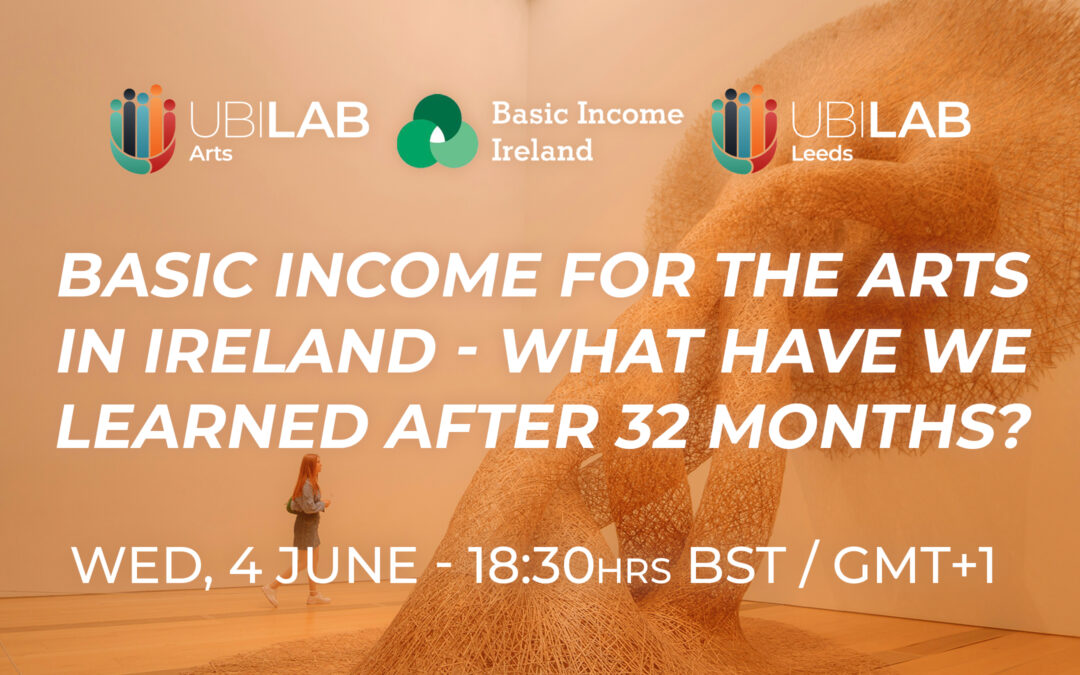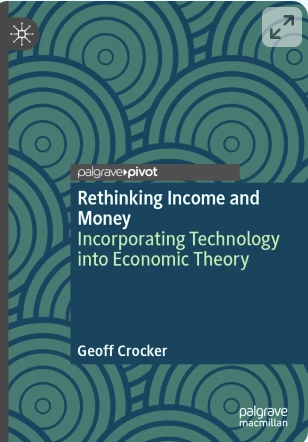
Where to stay during the 24th BIEN Congress and how to get around between the cities?
To view this new helpful information click here.

To view this new helpful information click here.

When? Wednesday, June 4, 2025, 6:30-8:00 PM UK GMT +1hr (BST)
Where? Online (Zoom)
Please join us for the sixth in our special series of discussions dedicated to reflecting on what we can learn from the Irish Basic Income for the Arts Pilot Scheme, as it unfolds.
The Government of Ireland is running a Basic Income pilot that began in September 2022 and will end in August this year. 2000 artists and cultural workers receive a weekly unconditional income of €325 weekly for a period of three years. This sixth session will be an opportunity to check-in with some of the artists involved in the pilot scheme and learn from them about how it is affecting them and their creative communities. We will also discuss whether the change of Irish government in January 2025 has affected the pilot, the end of the pilot in August this year and what may happen afterwards.
To register, click here.
You can watch the recordings from our previous five sessions here:
First Session Dec 2022 | Second Session Jun 2023 | Third Session Dec 2023 | Fourth Session Jun 2024 | Fifth Session Dec 2024

There’s a 20% discount on offer by applying the code 8ClQSFzpKofo3k.
To access the book, click here.

To access the library, click here.

Exception or Vision for the Future? Basic Income as Local Social Policy in Brazil
Abstract
In 2013, the city of Maricá launched a political experiment by introducing a social policy inspired by basic income (in Portuguese: Renda Básica de Cidadania de Maricá). While skeptical voices questioned the vision of the local government from the very beginning, practice has shown remarkable results: the program, which still exists today, now reaches nearly half of the city’s population, is integrated into the local economy, and has inspired similar policies in other cities and municipalities within the state. In its expansion, it recalls the early phase of one of Brazil’s most notable social policy exports: Bolsa Família, the world’s largest government cash transfer program.
But is it really that simple? What lessons can we draw from over 10 years of local, basic income-based policy in Brazil? And should we dare to compare it with the situation in Germany?
For time and details click here.